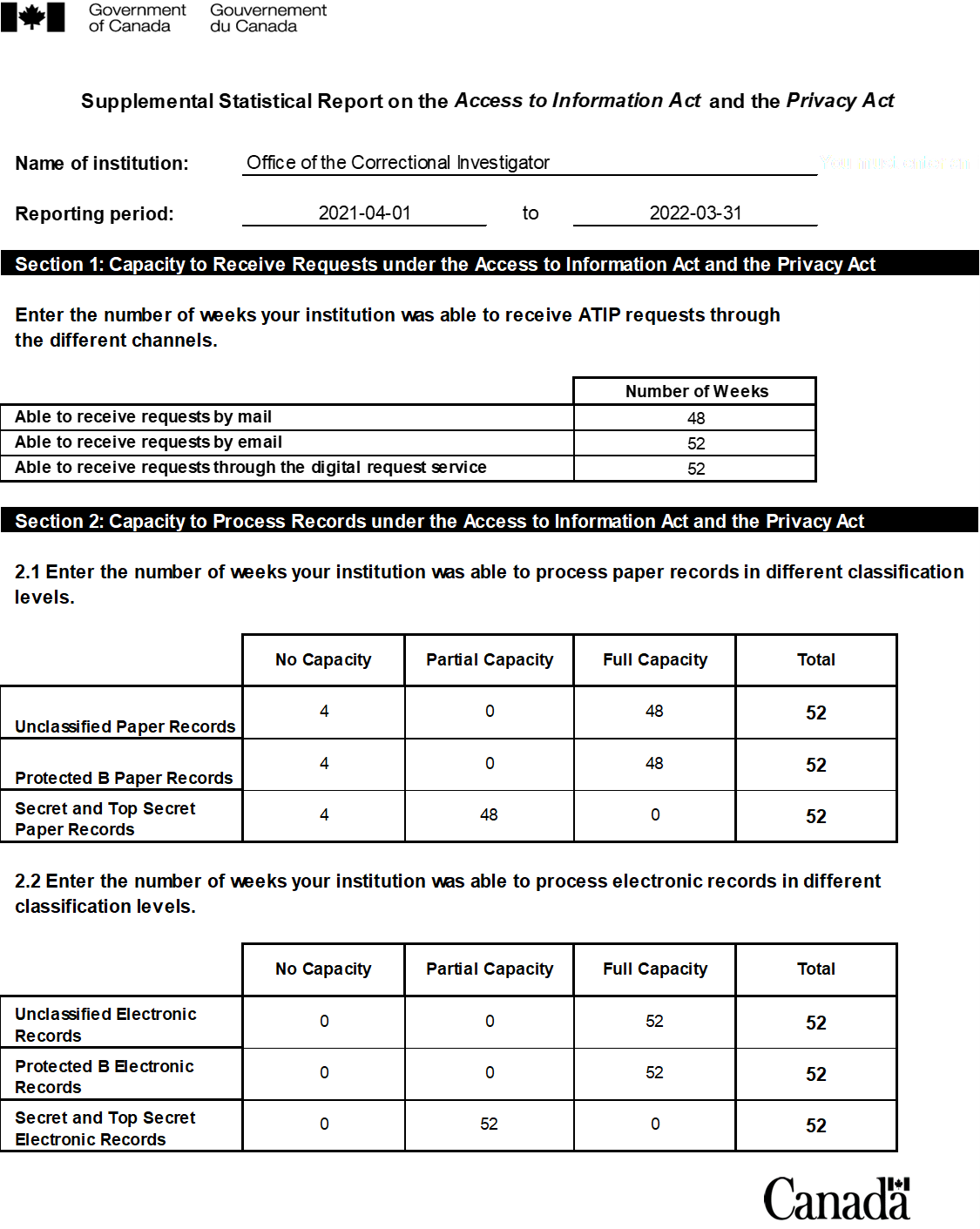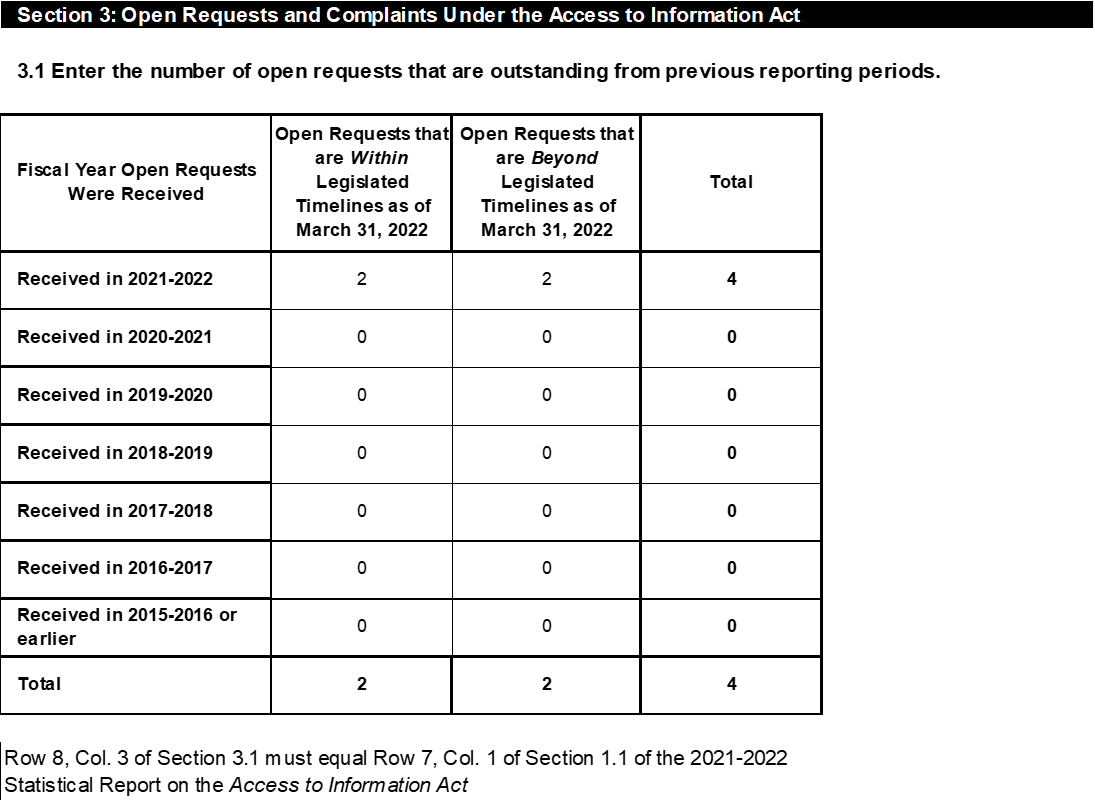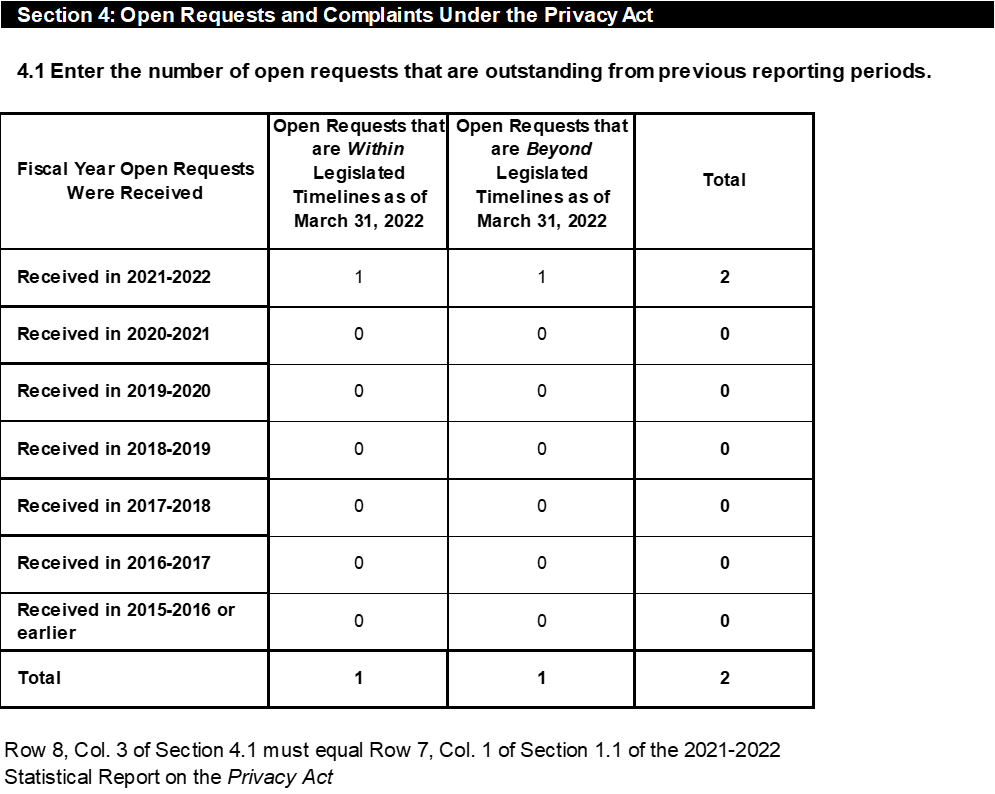INTRODUCTION
The Office of the Correctional Investigator is pleased to submit to Parliament its Annual Report on the administration of the Access to Information Act (ATIA) for the fiscal year commencing on April 1, 2021 and ending March 31, 2022. This report is submitted in accordance with section 94 of the Act. This report is tabled in Parliament by the Minister of Public Safety.
The Access to Information Act took effect on July 1, 1983. The ATIA gives Canadian citizens, permanent residents and any person and corporation present in Canada a right of access to information contained in government records, subject to certain specific and limited exceptions.
OUR MANDATE
The Office of the Correctional Investigator is mandated by Part III of the Corrections and Conditional Release Act as an Ombudsman for federal offenders. The primary function of the Office is to investigate and bring resolution to individual offender complaints. The Office as well, has a responsibility to review and make recommendations on the Correctional Service's policies and procedures associated with the areas of individual complaints to ensure that systemic areas of concern are identified and appropriately addressed.
OUR MISSION
As the ombudsman for federally sentenced offenders, the Office of the Correctional Investigator serves Canadians and contributes to safe, lawful and humane corrections through independent oversight of the Correctional Service of Canada by providing accessible, impartial and timely investigation of individual and systemic concerns. While an independent organization, the Office of the Correctional Investigator is part of the Public Safety and Emergency Preparedness Portfolio.
ACCESS TO INFORMATION ACTIVITIES
The Minister of Public Safety is the designated head of the institution for the Access to Information Act. The Correctional Investigator has been delegated full authority under the Access to Information Act by the Minister. Full authority under the Act has also been delegated to the Access to Information and Privacy Coordinator. The delegation of authority to administer the Act was confirmed by the Minister of Public Safety and Emergency Preparedness on July 31, 2020 (see Appendix C).
While the responsibilities of the ATIP Coordinator are assigned to the Director and Legal Counsel, the actual processing of requests and any associated activities are generally carried out by a consultant. Given the limited number of requests, it is felt that this is the most cost-effective utilization of resources and delivery of these activities.
The ATIP Coordinator is accountable for the development, coordination and implementation of effective policies, guidelines, systems and procedures to ensure the responsibilities under the Access to Information Act are met and to enable appropriate processing and proper disclosure of information. The Coordinator is also responsible for related policies, systems and procedures emanating from the Act.
The main activities of the ATIP Coordinator include:
- Processing requests under the Act;
- Developing and maintaining policies, procedures and guidelines to ensure the Act is respected;
- Promoting awareness of the Act to ensure the OCI’s responsiveness to the obligations imposed on the government;
- Monitoring the OCI’s compliance with the Act, regulations and relevant procedures and policies;
- Preparing annual reports to Parliament and other statutory reports, as well as other material that may be required by central agencies;
- Representing the OCI in dealings with the Treasury Board Secretariat, the Information Commissioner and other government agencies regarding the application of the Act as they relate to the OCI; and
- Supporting the OCI in meeting its commitments in relation to greater openness and transparency through proactive disclosure of information and the disclosure of information through informal avenues.
The OCI is not subject to any agreements under section 96 of the Access to Information Act.
DURING THE REPORTING PERIOD
Thirty (30) requests were received and there were five (5) outstanding from the previous reporting period. Of these requests:
Twenty-one (21) were disclosed in part (70%)
Two (2) were released in its entirety (6%)
None were exempted in their entirety
One (1) was abandoned (3%)
Five (5) had no existing records (16%)
None were transferred
Six (6) were carried forward to the next reporting period (20%)
Three (3) requests were outstanding from the 2020-2021 reporting period and were completed beyond the legislated timeline.
We have found that with an increase in interest in policy issues, online requests are the main source of requests. However, due to the majority of our requesters being incarcerated individuals, receiving requests by mail remains a leading way to receive requests for the Office.
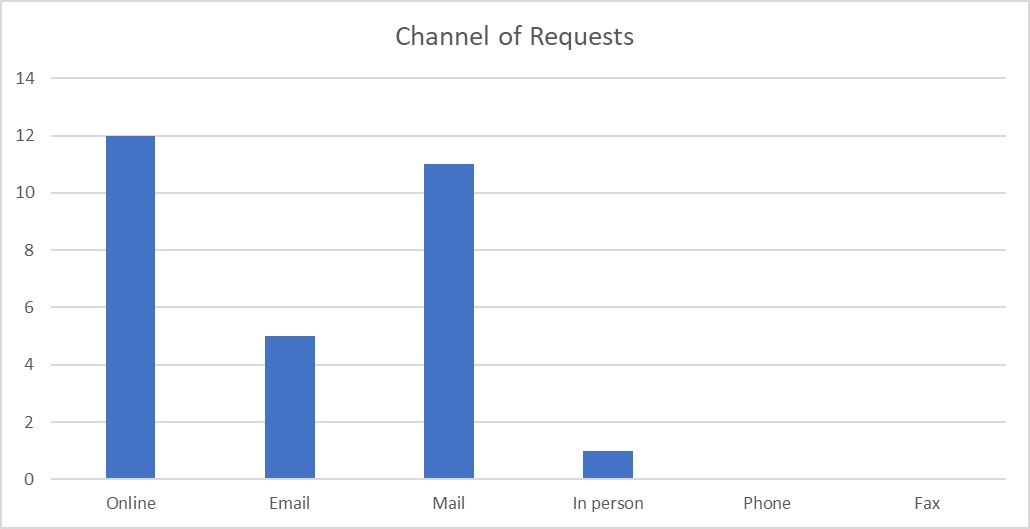
Extensions were taken for six (6) of the requests. Extensions were taken to consult with other government departments. In order to alleviate extensive delays when consulting with the Correctional Service of Canada, the Office and CSC have come to an agreement that consultations will only be done when absolutely necessary.
There was one (1) informal request received this year.
The Office could not meet the statutory response time for twenty (20) requests during the reporting period. In sixteen (16) of the twenty (20) requests, the delays were attributable to delays within our own office.
The OCI responded to 31% of requests within the legislated timelines. Although our office has been able to receive new requests both by mail and electronically, completing requests within legislated timelines presented challenges. The reasons for delay included a substantially higher number of pages responsive to the received requests, COVID-19 priorities within the institutions; limited access to the main office and to printed files and documents; and challenges related to the health of staff members. Since a majority of requesters are under custody and have no access to electronic communications, the administrative process of a number of requests require presence in the workplace, which was limited due to physical distancing measures.
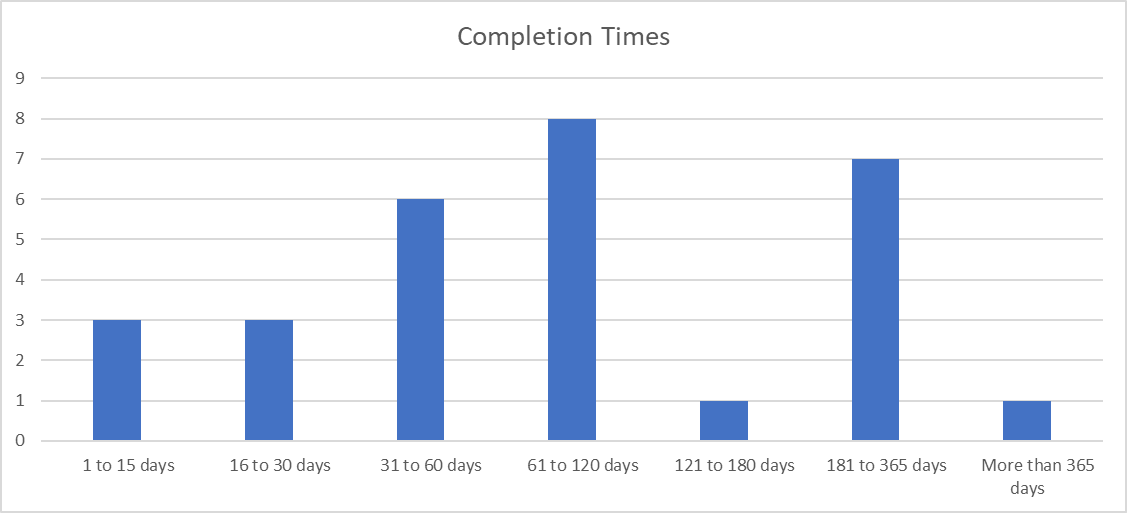
Monitoring, by the ATIP Coordinator, of the time required to process these access requests was completed in preparing the historical trend analysis in this report. The Executive Director and the ATIP Coordinator are advised by way of a briefing note when requests are not closed within the required time limits. The briefing note advises of the reason for the late response.
No training sessions were provided during the reporting period. Advice, guidance and recommendations were provided by the consultant on an as required basis to Management and staff.
The new retrieval process implemented last year continues to be streamlined and improved, however, the move to a work-from-home environment continues to present challenges.
The OCI did not receive any complaints during the reporting period. One complaint from the 2019-2020 fiscal year remains active at the time of writing this report.
COVID-19 RELATED MEASURES
The OCI continues to function in a state of emergency along with the rest of the Federal Government. Our office transitioned well to a work-from-home environment however delays were experienced in implementing new procedures once we understood that the stay-at-home orders were going to be have a long-term impact.
As previously mentioned, the office has experienced some delays with response times during this period due to other ATIP offices not being able to respond to consultations on time as well as the office managing other state of emergency priorities.
COSTS
For 2021-22, the costs directly associated with the administration of the Access to Information Act are estimated at $37,068.
Staff $ 8,511
Consultant fees $27,009
Other $ 1,548
The associated employee resources for 2021-22 are estimated at 0.322 FTE for administering the Access to Information Act.
FIVE-YEAR HISTORICAL TREND ANALYSIS
Over a five-year period, from 2017-18 to 2021-22, the OCI received an average of twenty (20) requests annually.
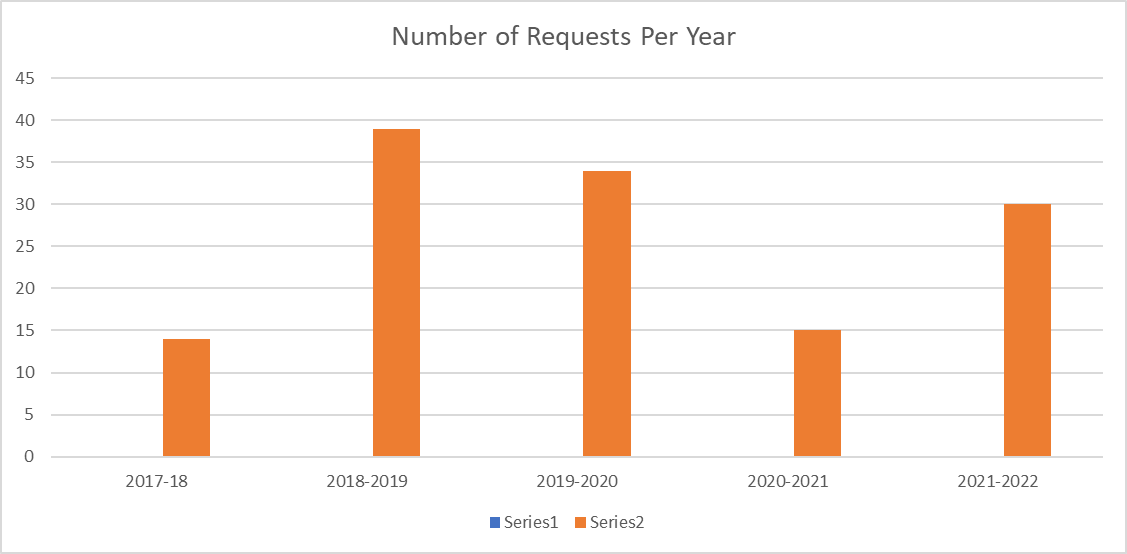
Over the last five years, the OCI has maintained a 41% completion rate of requests processed between 1-60 days.
The Source of the Requests remains the most often the Public with an average of fifteen (15) requests followed by Business and Media with an average of two (2) and two (2) requests respectively.
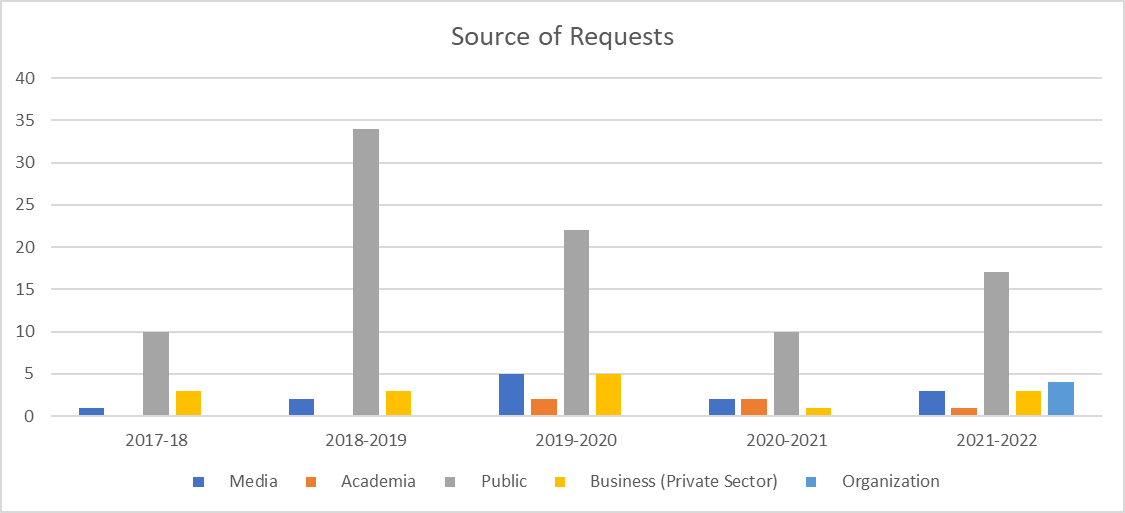
Concerning the number of pages processed, an average of seven thousand, one hundred and sixty-three (7,163) was recorded.
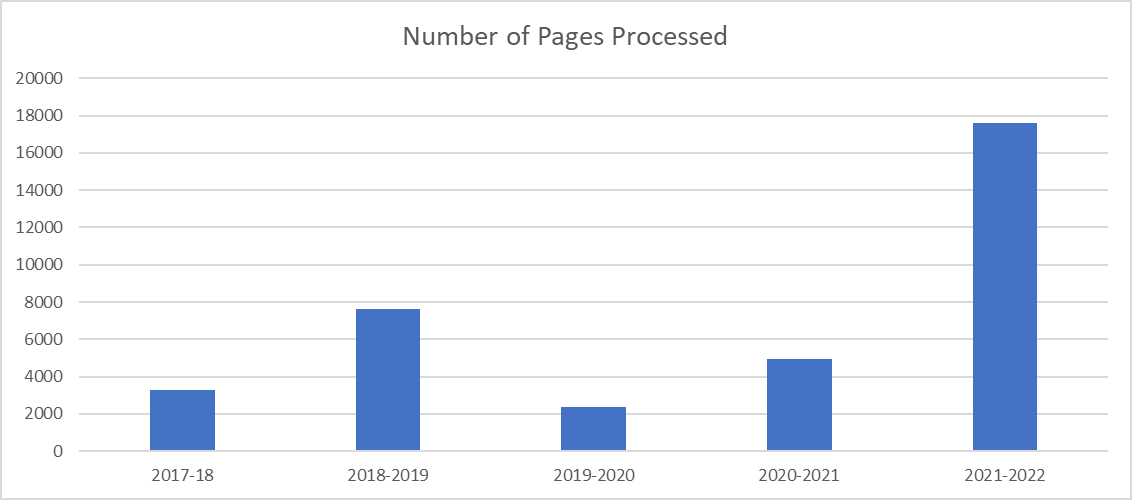
The most frequently used exemptions were:
- 19(1) at 52%
- 16(1)(d) at 17%
- 21(1)(b) at 8%
A total of forty-seven (47) extensions for consultations were recorded for an average of nine (9) extensions per reporting period. Because the majority of the records held by the Office were provided by or of interest to the Correctional Service of Canada, the majority of our files require a consultation with the CSC ATIP office.
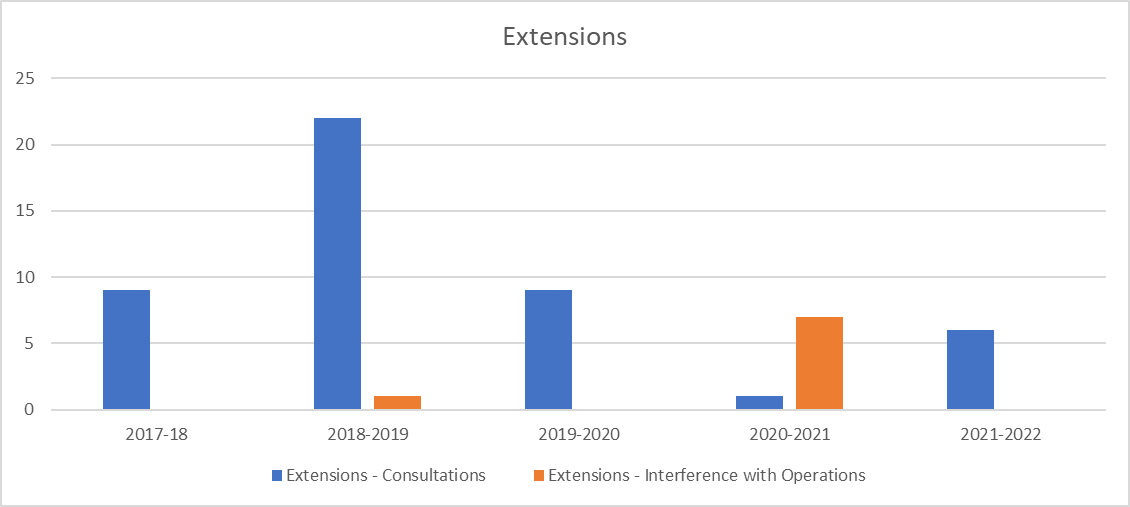
A total of thirty-five (35) consultations were received from other government organizations for an average of seven (7) consultations per reporting period. Consultations from other government organizations are always processed within seven (7) days with the exception of one (1) during this reporting period. The delay on the one (1) was due to the consultation not being provided to the ATIP office as soon as it was received at the OCI.
This baseline data will continue to be used in future years to assess trends, inform ongoing improvement in the processing of ATI requests and implementing corrective measures where necessary.
Appendix A: Delegation Order
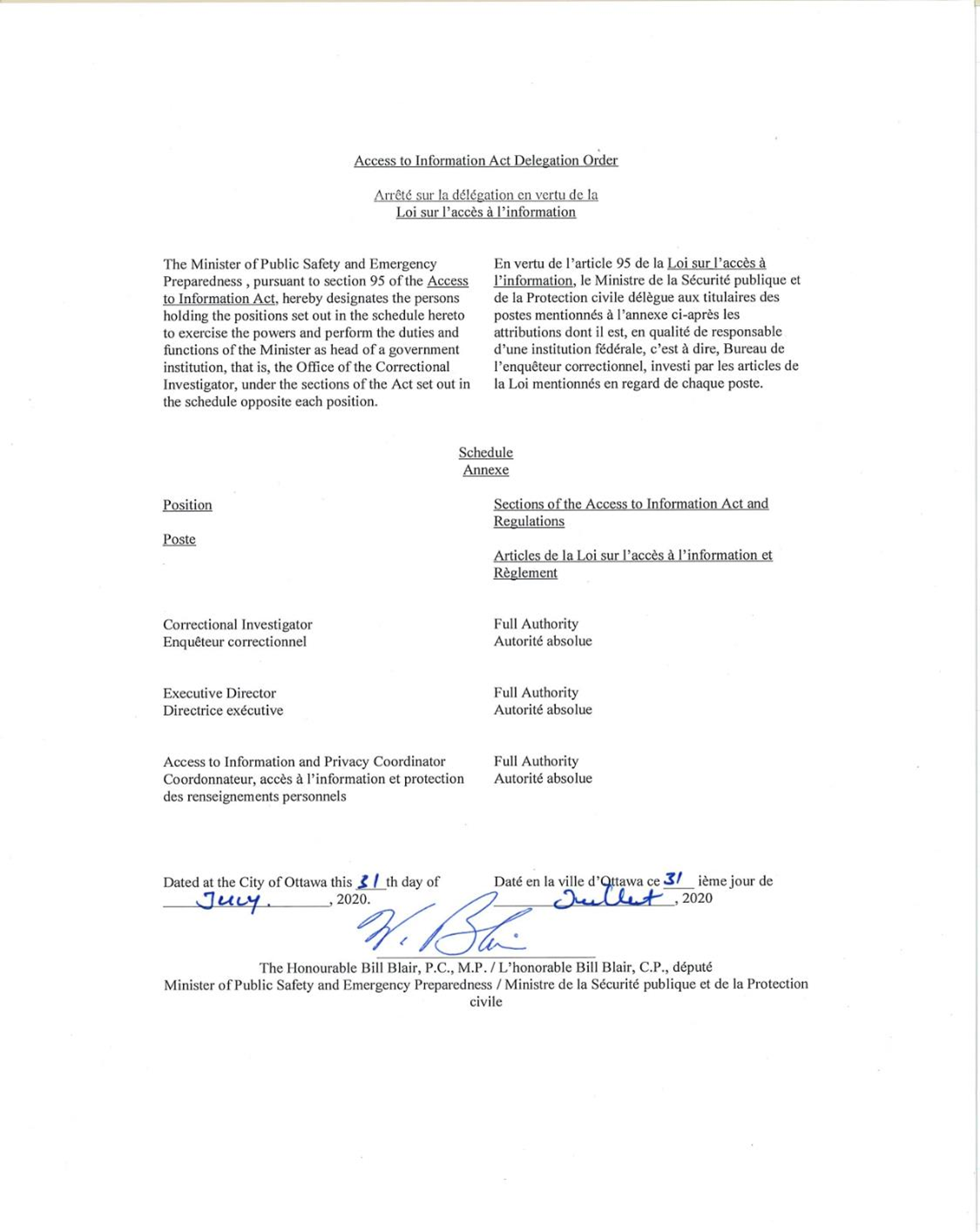
Appendix B: Statistical Report
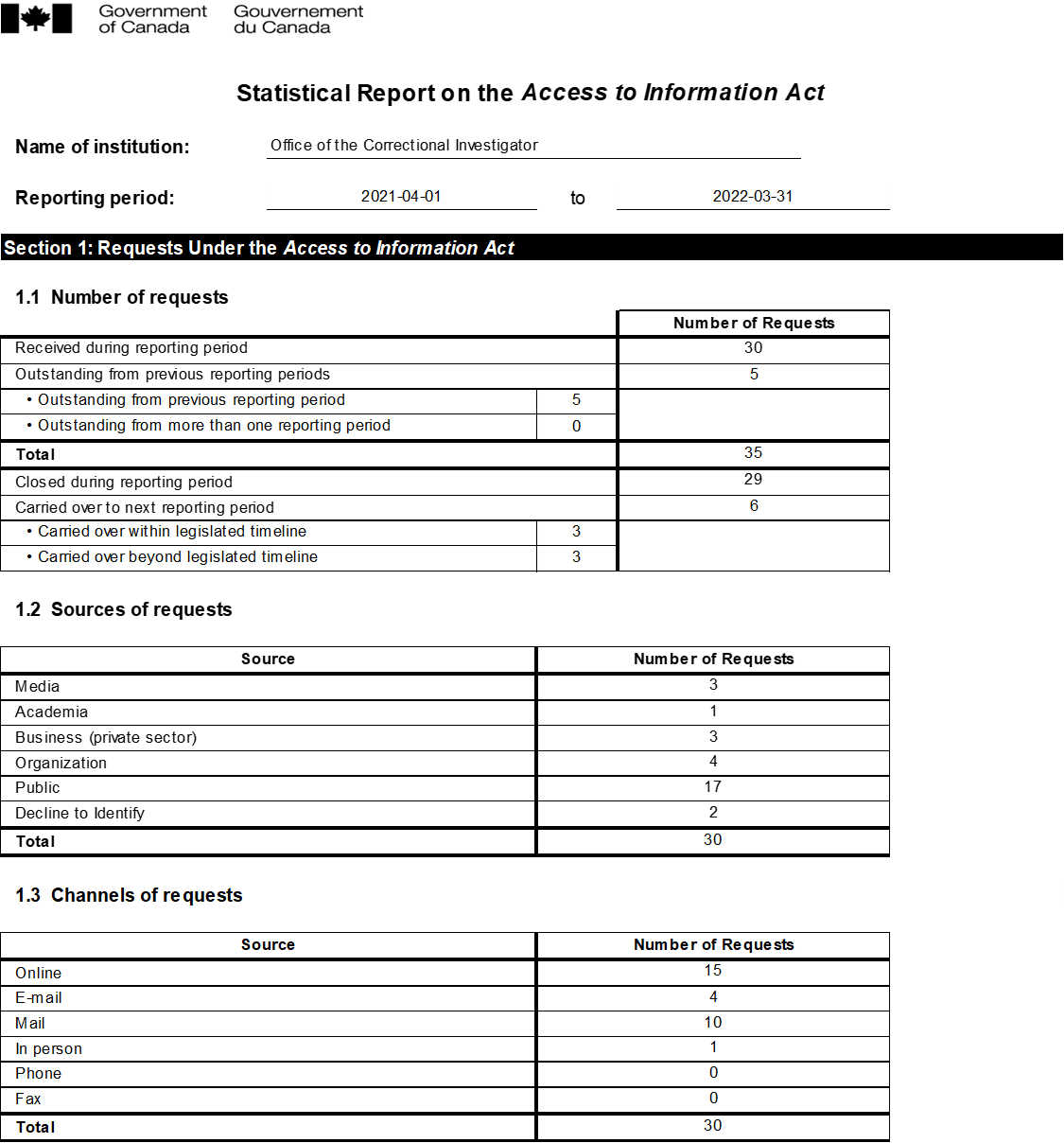
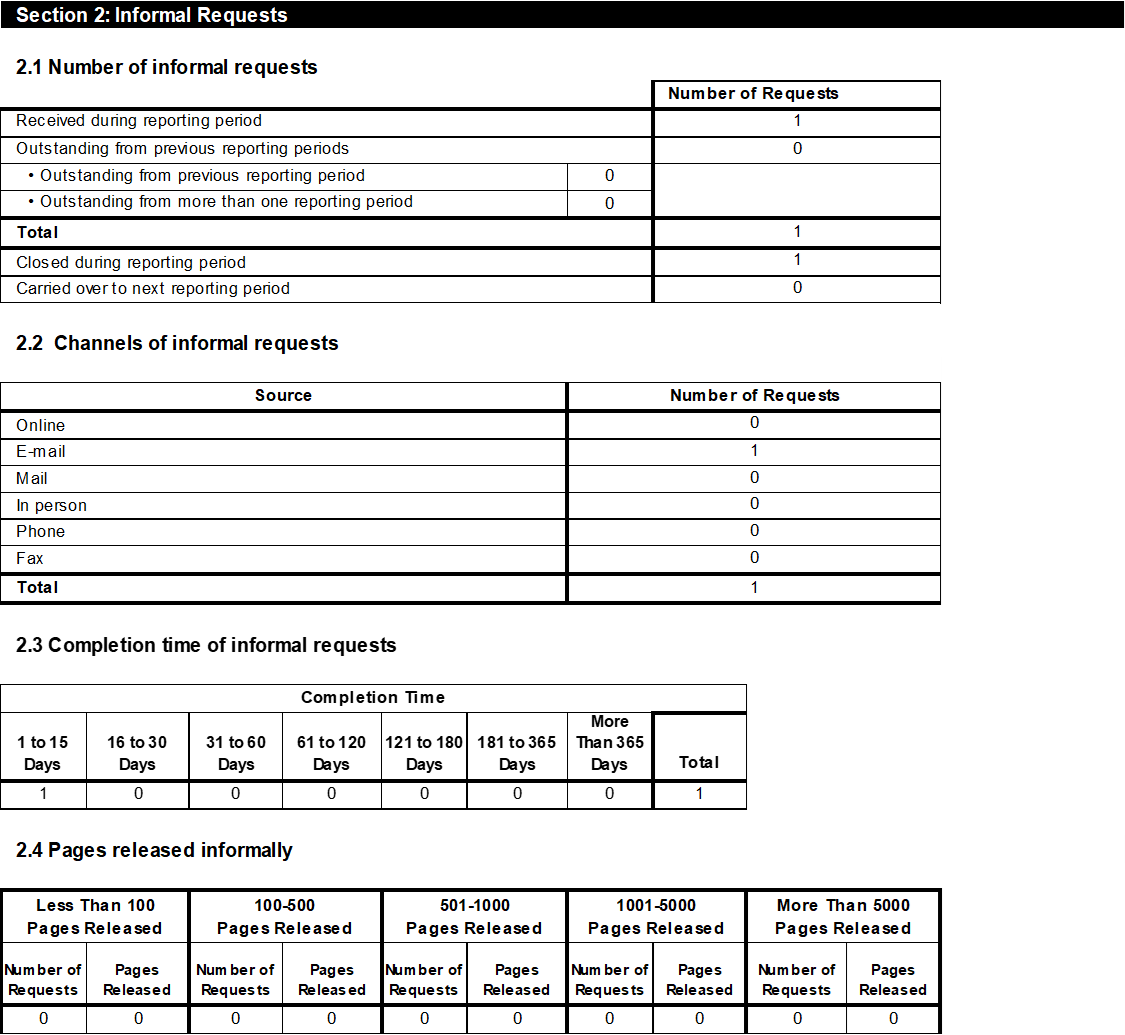

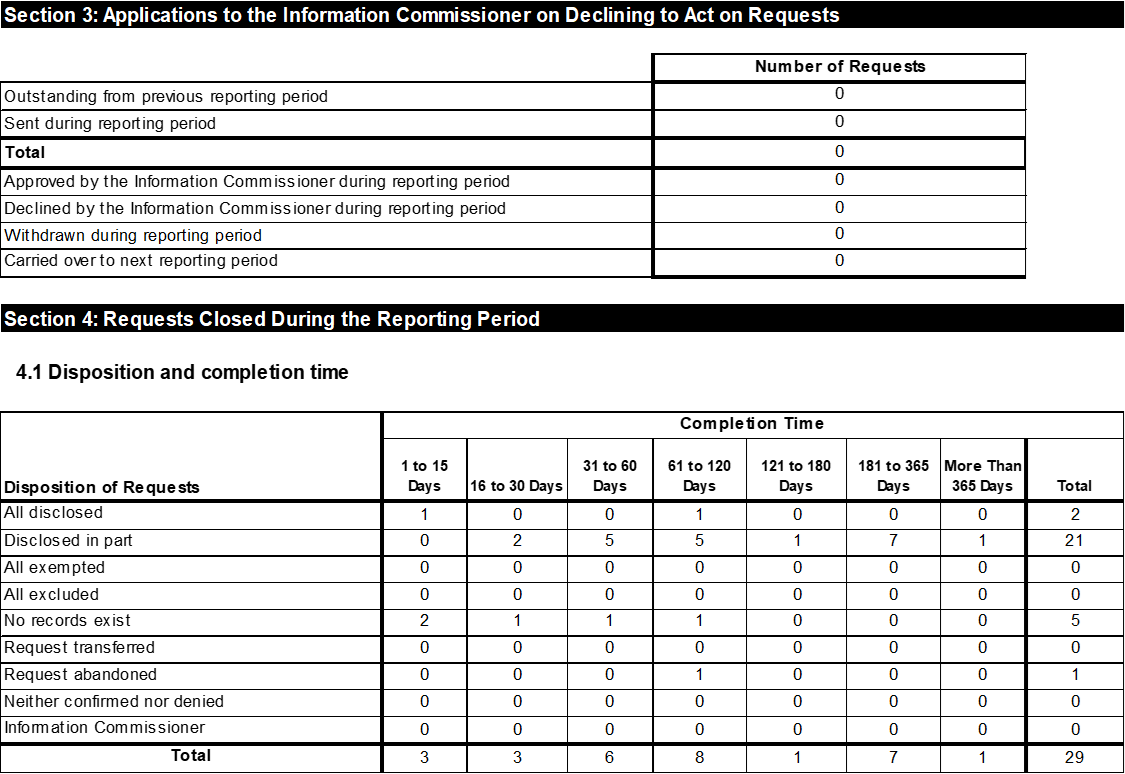

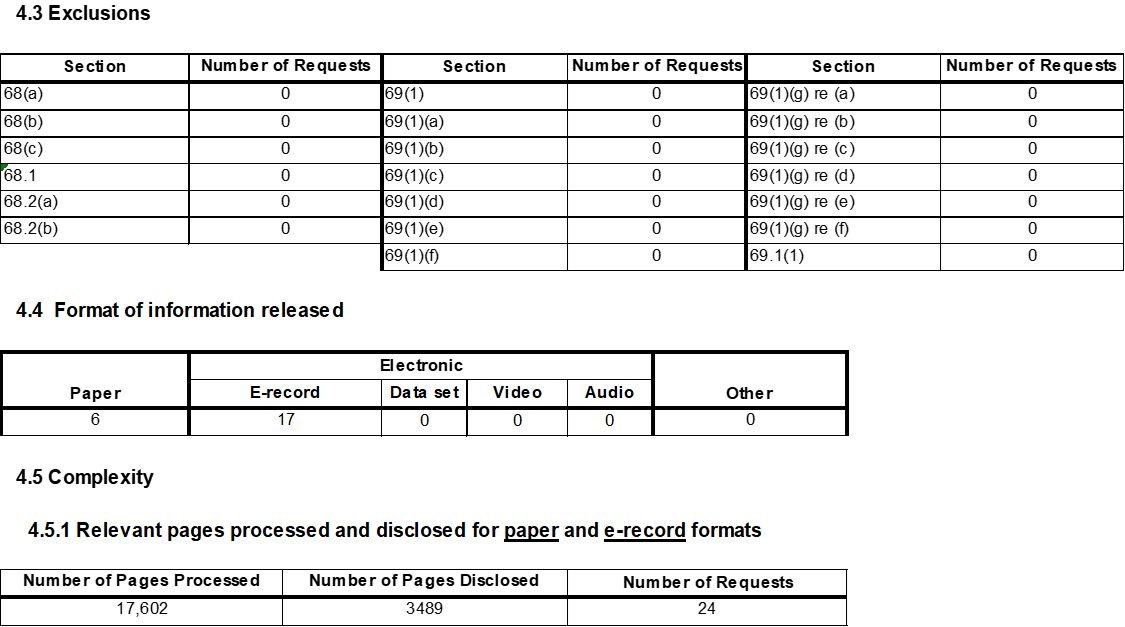
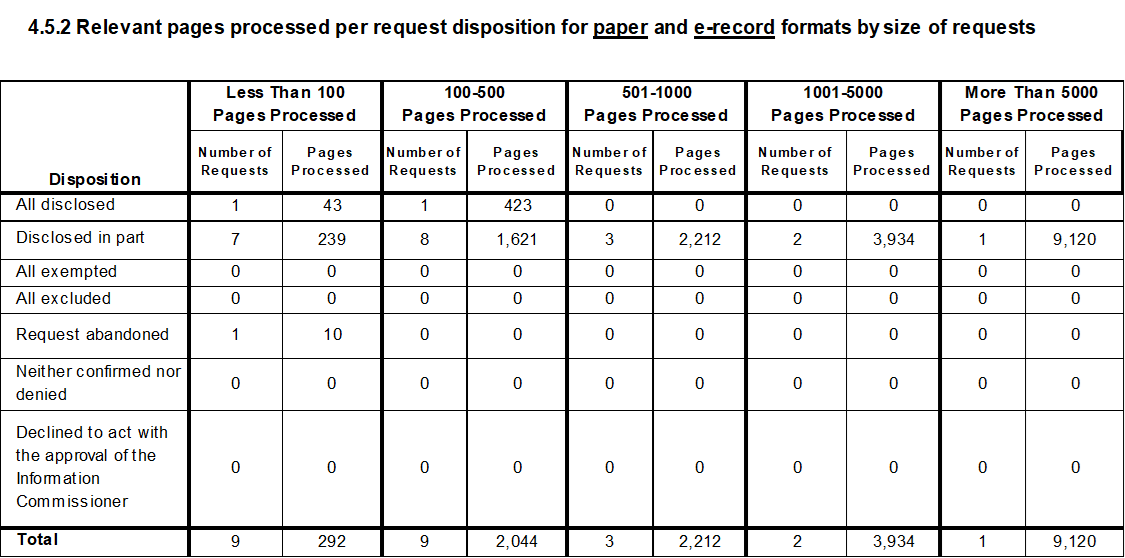
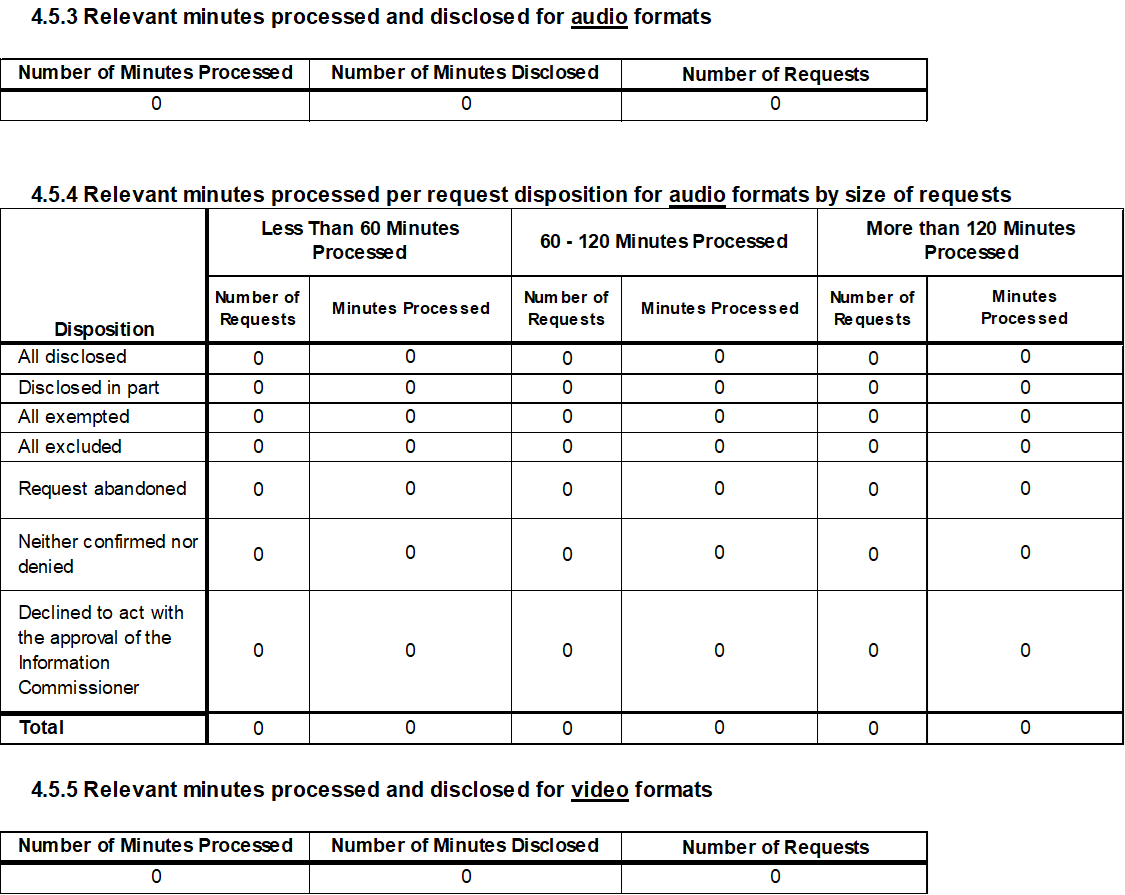
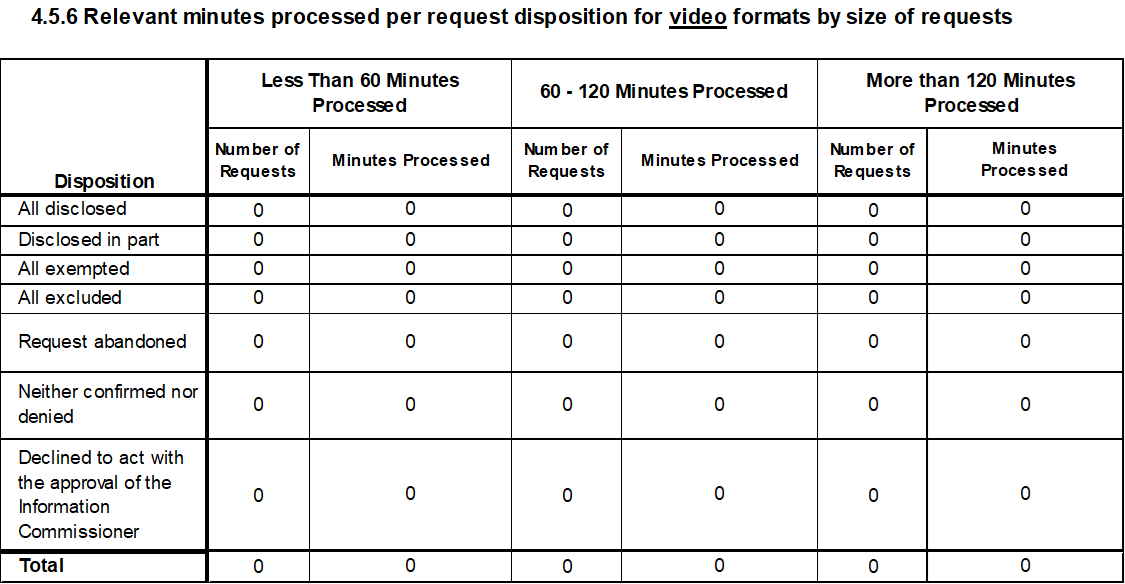
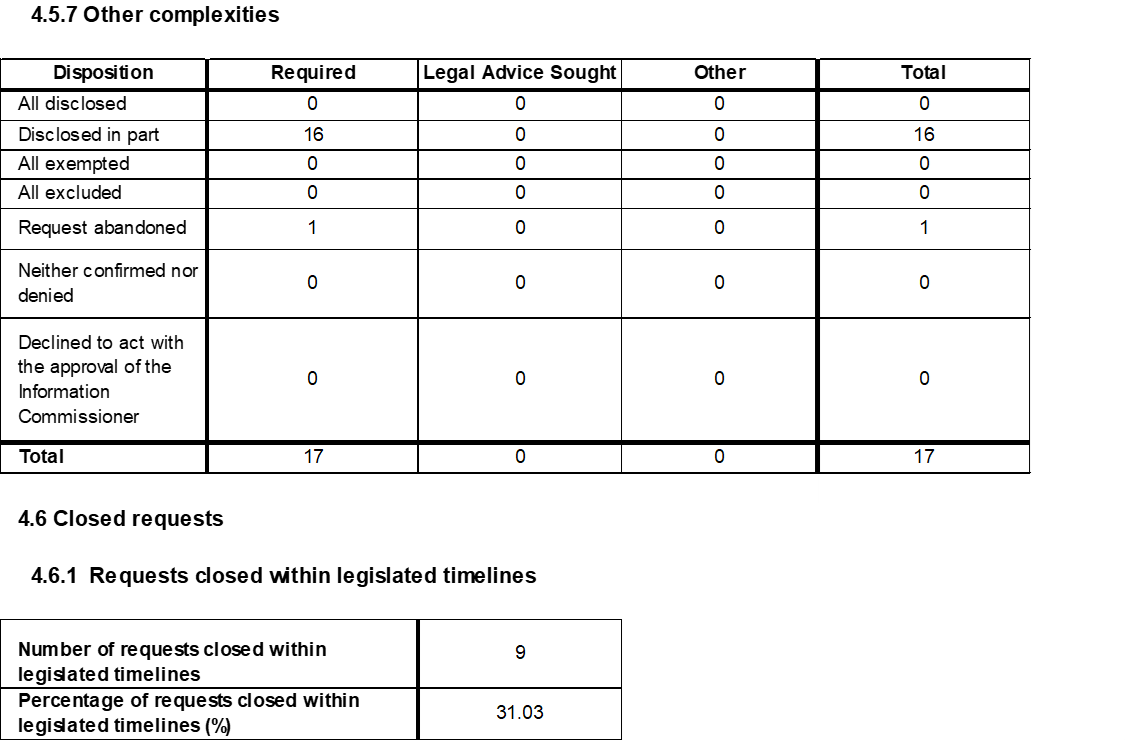
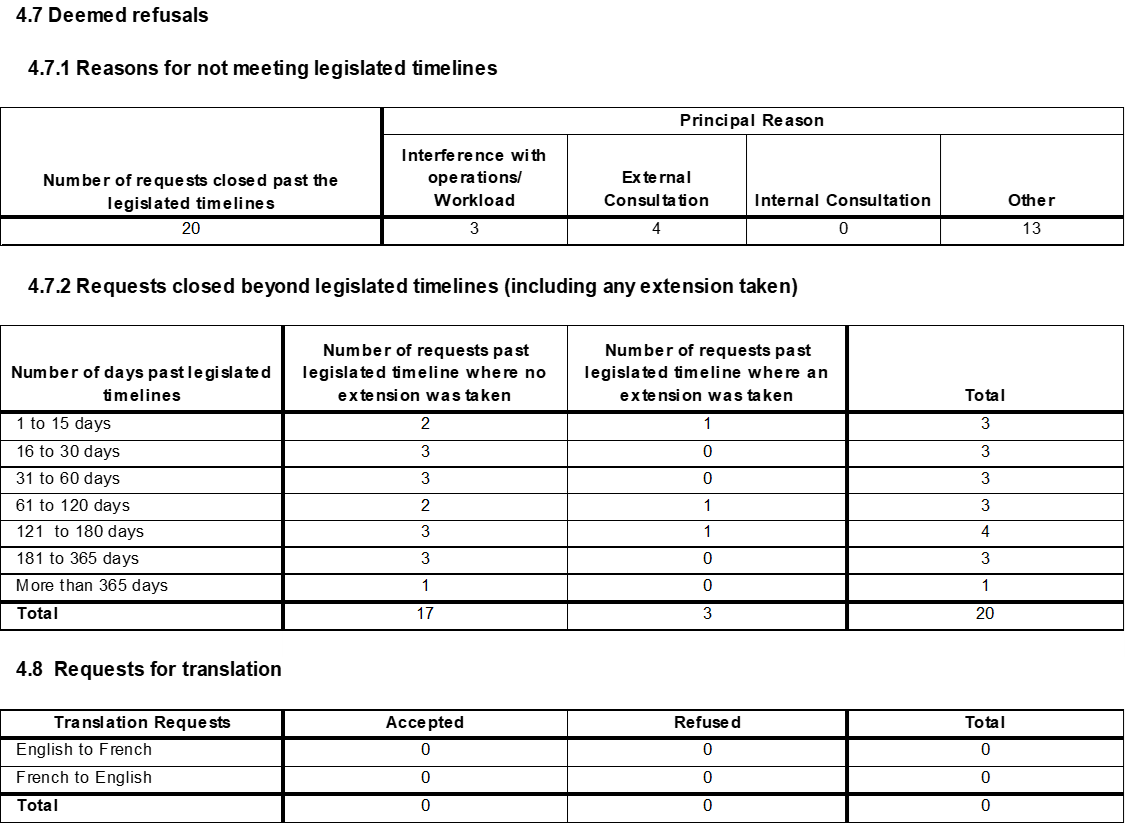
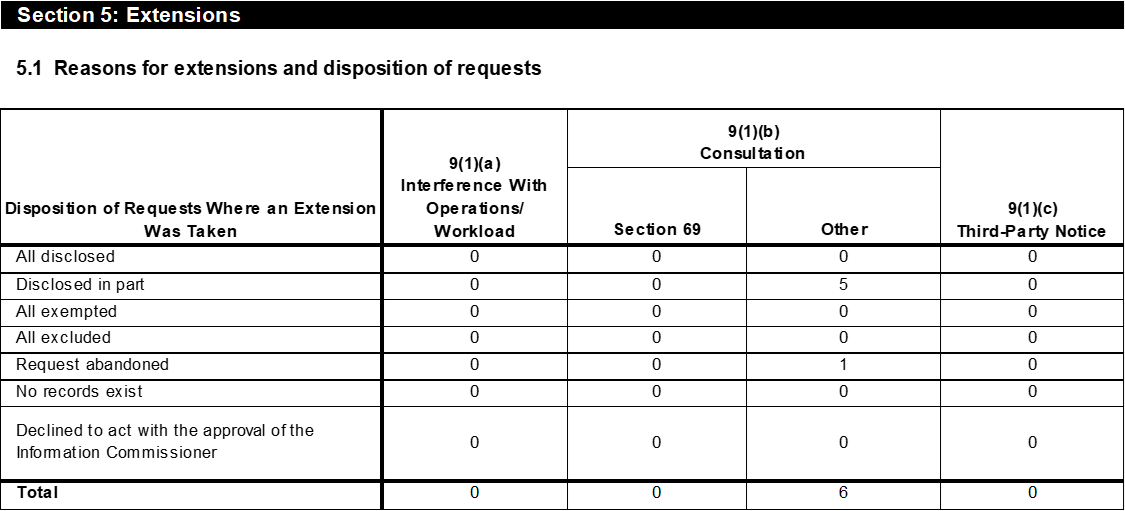
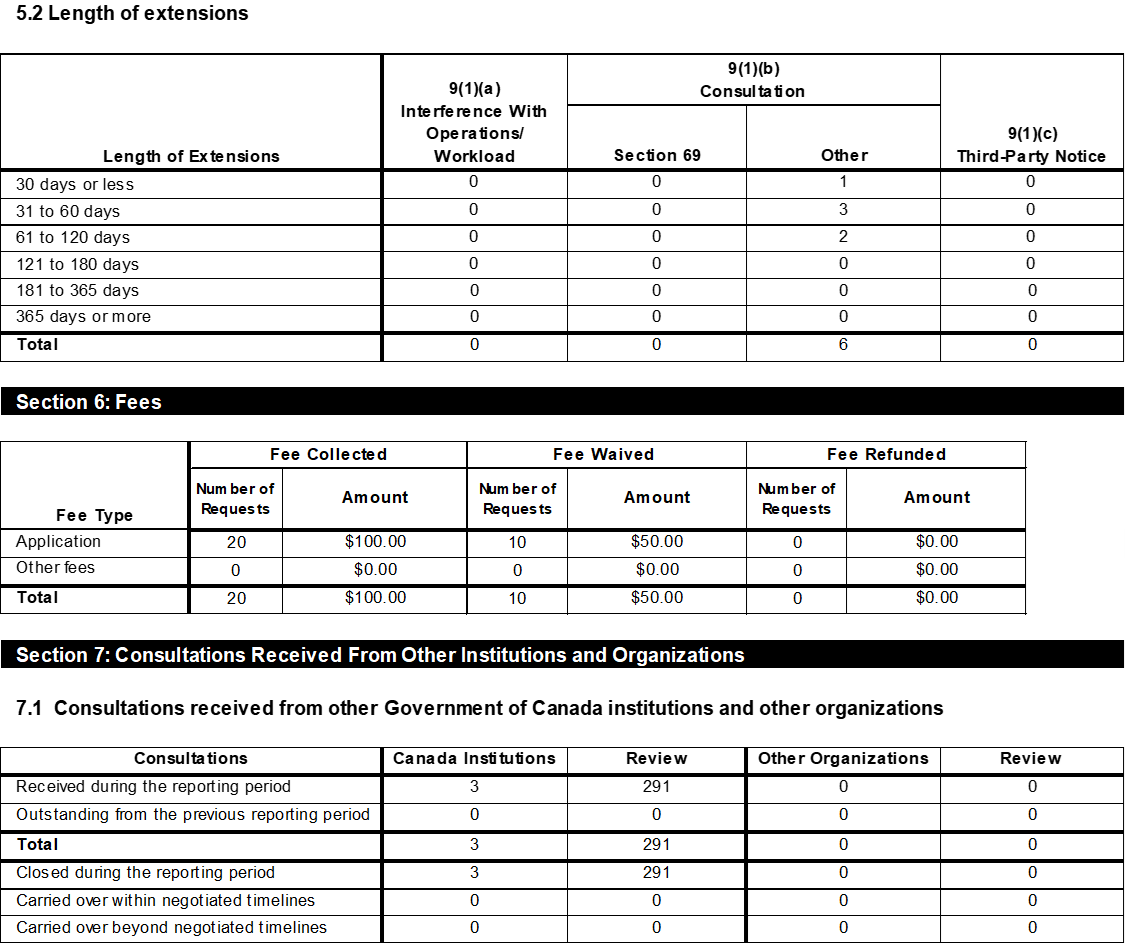

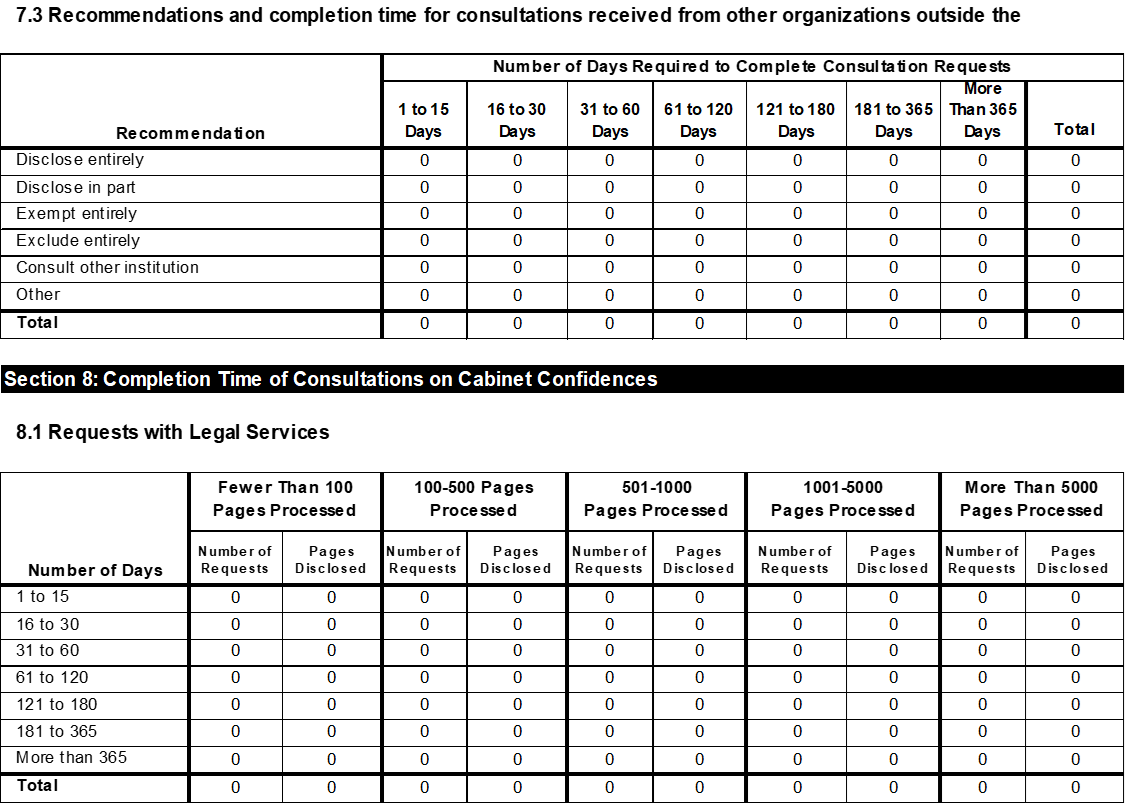
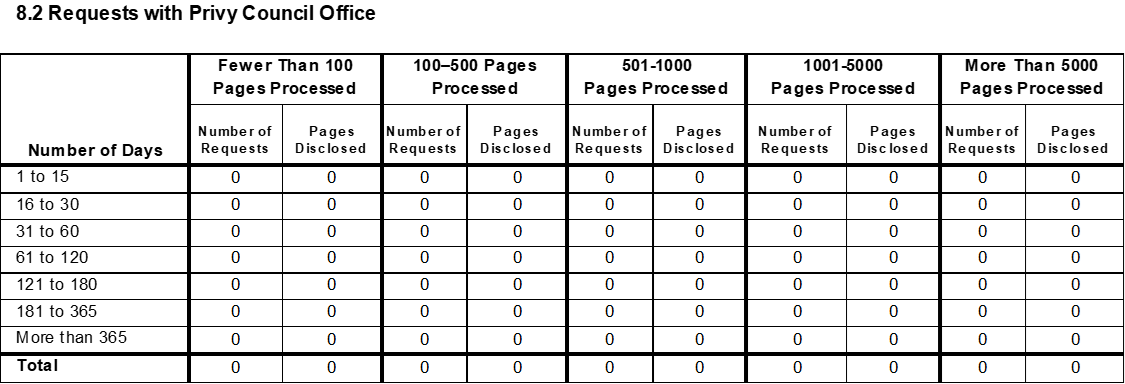
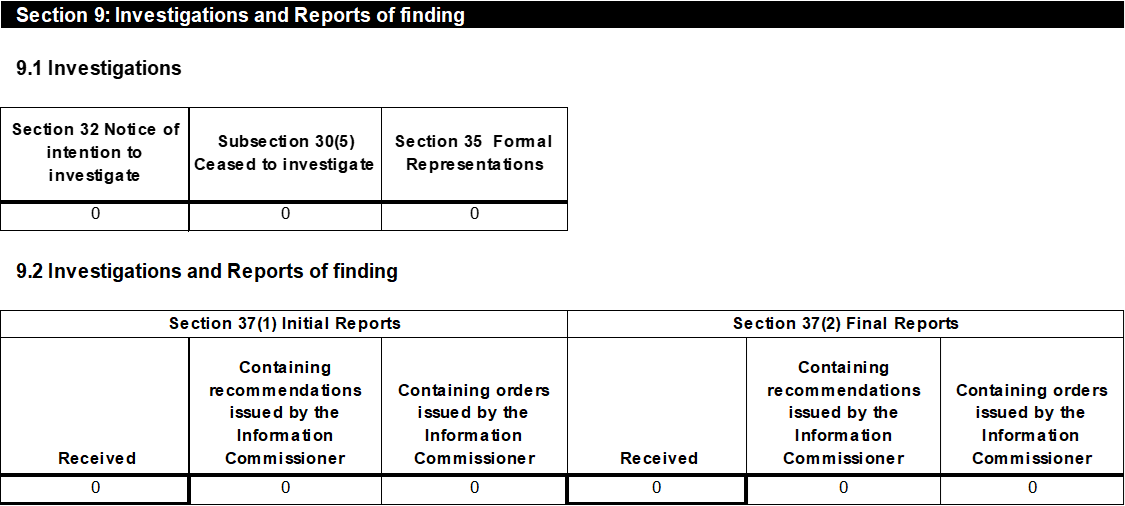

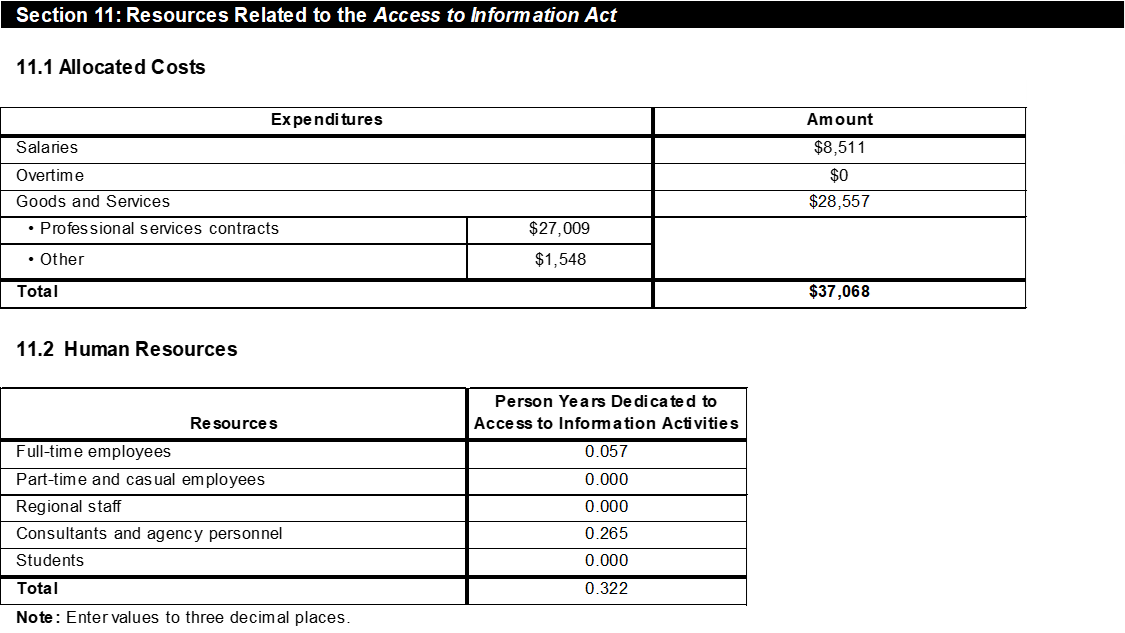
Appendix C: Supplemental Statistical Report
